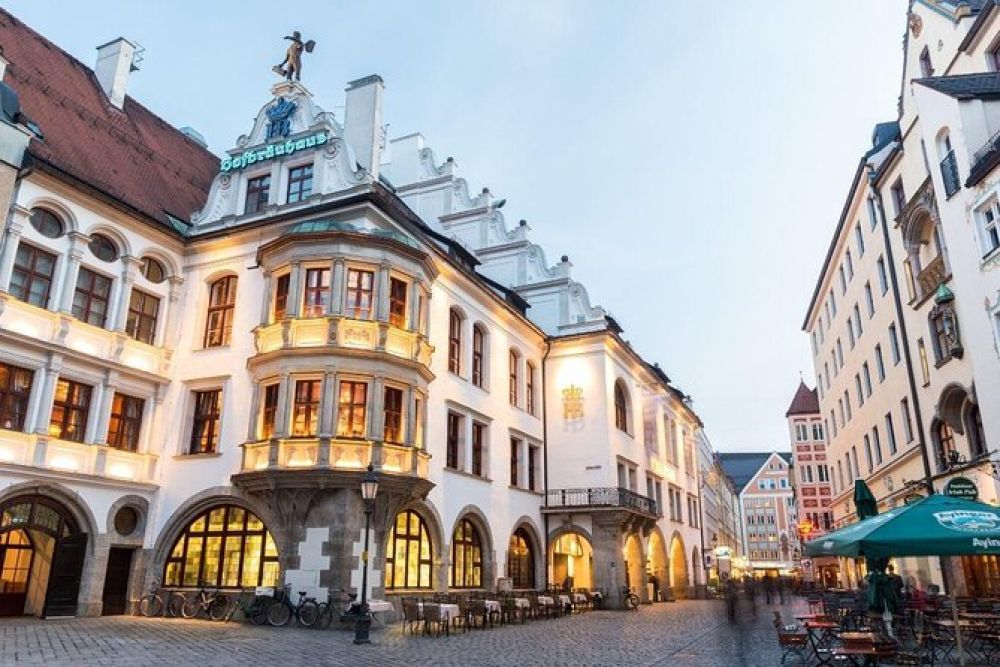

The Hofbräuhaus in Munich, Germany, is not merely a beer hall; it’s a historical institution that has attracted visitors from around the world for centuries. Founded in 1589 by the Duke of Bavaria, Wilhelm V, the Hofbräuhaus was originally built to fulfill the royal court's demand for quality beer. Over time, it became public, allowing locals and travelers alike to indulge in Bavarian beer and cuisine.
Tourism at the Hofbräuhaus began to flourish in the 19th century when Munich turned into a magnet for travelers keen on experiencing its culture. The Hofbräuhaus, with its lively atmosphere, accessible location in the heart of Munich, and reputation for excellent beer, quickly became a must-visit destination.
During the 20th century, the fame of the Hofbräuhaus continued to grow. Despite the damages it suffered during World War II, it was promptly restored and re-opened to the public, symbolizing the resilience and enduring spirit of Munich’s culture.
Hofbräuhaus stands as a testament to Bavarian culture and tradition. It’s famous for its boisterous beer hall with long communal tables, traditional live music, and lederhosen-clad staff. This authenticity plays a crucial role in its appeal to tourists, who come not only to drink beer but also to soak in a piece of Bavarian history and conviviality.
In recent times, Hofbräuhaus has adapted to cater to a global audience. Information is available in multiple languages, and despite its popularity amongst tourists, it remains a beloved spot for locals, sustaining its authentic charm. The beer hall’s ability to be a place of gathering for people from diverse backgrounds is a significant draw.
Many tourists plan their visits to coincide with traditional festivals and events, such as Oktoberfest, where Hofbräuhaus plays a central role. Visitors enjoy the special brews made for the occasion and participate in timeless Bavarian festivities.
The latest trends in tourism have seen a rise in experiential travel, where visitors seek authentic and engaging cultural experiences. Hofbräuhaus caters to this demand with brewery tours, Bavarian cooking classes, and cultural events. The convergence of digital experiences with traditional tourism has also affected Hofbräuhaus. Virtual tours and online experiences cater to those who are unable to visit the beer hall in person but are still intrigued by its legacy.
Sustainability is another trend in the tourism industry, and Hofbräuhaus has taken steps to incorporate eco-friendly practices while preserving its historic character.
Despite the changing trends and challenges faced by the tourism industry, Hofbräuhaus remains a timeless icon and continues to draw people keen on experiencing a piece of Munich's vibrant history.
The Hofbräuhaus in Munich has evolved from a royal brewery to an emblem of Bavarian hospitality and culture, standing out as one of the city’s major tourist landmarks. Its rich history coupled with the city’s embrace of new tourism trends ensures that Hofbräuhaus will continue to be a beloved destination for many years to come.